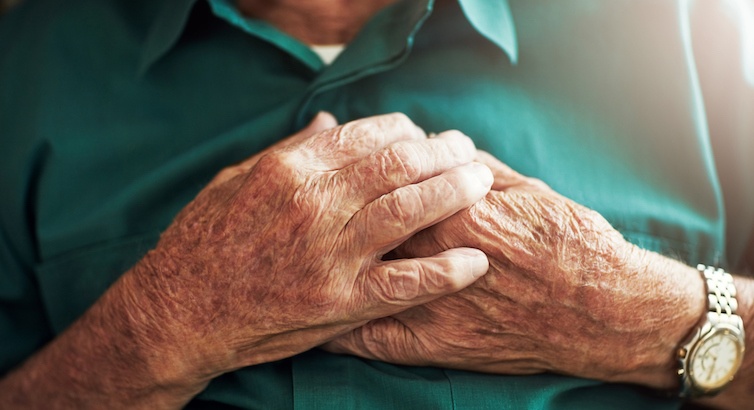Very few things are scarier than the thought of having a heart attack, especially having one while all alone. Once symptoms start, problems can progress rapidly, and you need to react quickly. Being prepared can be the difference between life and death.
Christopher B. Haas, DO, an interventional cardiologist and medical director of the Heart and Vascular Institute at UPMC Western Maryland, has some tips to improve your odds of surviving a heart attack while alone.
Never Miss a Beat!
Subscribe to Our HealthBeat Newsletter!
Thank you for subscribing!
You can now select the specific newsletters you'd like to receive.
You are already subscribed.
Subscribe to more newsletters in our email preference center.
Sorry, an error occurred. Please try again later.
Get Healthy Tips Sent to Your Phone!
Know the Symptoms of a Heart Attack
“Knowing the warning signs is crucial,” says Dr. Haas. “Early treatment, especially within the first 90 minutes of the start of symptoms, can reduce the damage done to the heart and save your life.”
Chest pain/pressure/discomfort lasting a few minutes or more is the main symptom of a heart attack. It is important to point out that although chest pain/pressure/discomfort is an important symptom for women to recognize, they are less likely than men to feel this, and often only have some of the other symptoms listed below (men may also have these as well):
- Shortness of breath.
- Nausea.
- Vomiting.
- Sudden profuse sweating.
- Dizziness.
- Extreme weakness.
- Anxiety
Actions You Can Take During a Heart Attack
- Call 911 immediately.
- If you are driving, pull over. You can lose consciousness very quickly. Even if a hospital is nearby, do not drive yourself.
- Take an aspirin. Chewing a 325 mg aspirin (or four 81 mg aspirins) can help reduce the risk of serious complications of a heart attack. You should do this only if you have the classic heart attack symptom of chest pain/discomfort/pressure, with or without the above symptoms. If you have only the other symptoms listed above, wait for the ambulance to arrive and emergency medical services will decide if aspirin is appropriate.
- Take Nitroglycerin. Only if you have a prescription for it, and use it as directed by your doctor, keeping in mind any medicines you may have taken recently that can cause severe reactions with Nitroglycerin. Again, consult your doctor at the time they give you this prescription regarding its proper use.
- Sit or lie down to rest and wait for the ambulance. Stay as calm as possible as anxiety will increase your adrenaline, and that can worsen the heart attack.
If you think you may have heart disease, consult your primary care physician or visit the UPMC Heart and Vascular Institute website.
Editor's Note: This article was originally published on , and was last reviewed on .
About Heart and Vascular Institute
The UPMC Heart and Vascular Institute has long been a leader in cardiovascular care, with a rich history in clinical research and innovation. As one of the first heart transplant centers in the country and as the developer of one of the first heart-assist devices, UPMC has contributed to advancing the field of cardiovascular medicine. We strive to provide the most advanced, cutting-edge care for our patients, treating both common and complex conditions. We also offer services that seek to improve the health of our communities, including heart screenings, free clinics, and heart health education. Find an expert near you.

